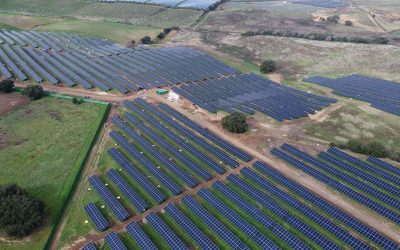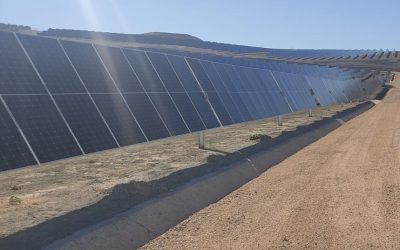BNZ, an independent power producer (IPP) that develops, builds and operates solar photovoltaic projects, has announced the start of construction of two solar power plants in the city of Mérida (Extremadura). The plants, named Emérita and Tremisol, will have a total capacity of 9.6MW each. Construction of Emérita is expected to be completed by the end of 2023, while Tremisol is expected to be completed in the summer of 2024.
This is BNZ’s second and third plant to be built in Spain, where it expects to install approximately 600 MWp capacity by 2026. In total, BNZ plans to deploy an aggregate portfolio of more than 1.7 GW of solar PV in southern Europe by the end of 2026.
The Managing Director of BNZ, Luis Selva, said that “we are very pleased to be able to promote these two new projects in Extremadura. The deployment of these two photovoltaic plants not only represents a further step in the decarbonisation of our economy, but will also be accompanied by environmental regeneration actions to integrate both projects into the habitat fauna, an intrinsic element of our philosophy as independent energy producers”.
With the clean energy produced in these two plants, which will occupy 18 hectares each and will have a combined capacity of 19.2 MW, the emission of 10,000 tonnes of CO2 equivalent per year will be avoided. It is also estimated that a total of 140 direct and indirect jobs will be created during construction, a figure that takes into account more than 14 local companies contracted.
BNZ commits to environmental regeneration of the territory
Beyond the positive economic impact of the facility on the local community and its compliance with the highest environmental standards, BNZ will collaborate with local authorities on environmental projects. As a sign of BNZ’s commitment to the local community of Mérida, it will carry out several environmental regeneration projects, including: dedicating 20% of the Emérita plant to the conservation of steppe birds and the radio-monitoring of two white storks from the existing colony in the area per year, during the construction phase and the first five years of the operating phase.
In this sense, BNZ will also monitor birdlife in the area surrounding the plant and will monitor the amphibian and reptile populations inside and outside the plant. In addition, a 3,500 square metre plot will be built for the conservation of the narcissus fernandesii and milagrosus exclusively, and will be ceded to the Junta de Extremadura to guarantee the conservation of both species. Finally, a contribution equivalent to 20% of the surface area of the plant will be dedicated to the steppe bird conservation campaign during the useful life of the solar plant.


